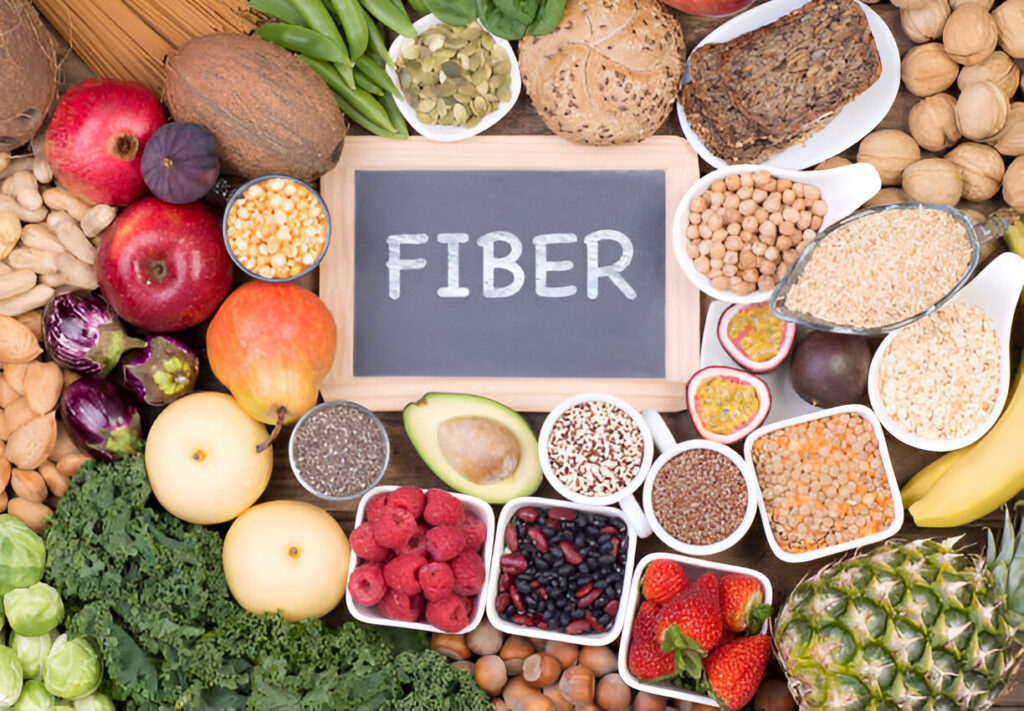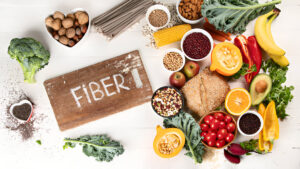Fiber is an essential nutrient that plays a crucial role in maintaining good digestive health. It keeps our digestive system running smoothly, supports heart health, and helps regulate blood sugar levels. But where can we get the best sources of fiber? Vegetables! Some vegetables are fiber powerhouses, helping you reach your daily intake goals while providing other essential nutrients.
What is Dietary Fiber?
Dietary fiber is a type of carbohydrate that the body cannot digest. It comes in two main types:
- Soluble Fiber: Dissolves in water, helping lower cholesterol and regulate blood sugar.
- Insoluble Fiber: Adds bulk to stool, aiding digestion and preventing constipation.
Eating a variety of fiber-rich vegetables ensures that you get both types, supporting overall health.
Top 10 High-Fiber Vegetables

1. Artichokes
- Fiber Content: 10.3g per medium artichoke
- Health Benefits: Great for gut health, promotes digestion and supports heart health.
2. Broccoli
- Fiber Content: 5.1g per cup (cooked)
- Health Benefits: High in antioxidants, supports immunity, and improves digestion.
3. Brussels Sprouts
- Fiber Content: 4g per cup (cooked)
- Health Benefits: Helps with detoxification and boosts gut bacteria.
4. Carrots
- Fiber Content: 3.6g per cup (chopped, raw)
- Health Benefits: Supports eye health and aids digestion.
5. Beets
- Fiber Content: 3.8g per cup (cooked)
- Health Benefits: High in antioxidants and supports heart health.
6. Spinach
- Fiber Content: 4.3g per cup (cooked)
- Health Benefits: Rich in iron, supports bone health, and promotes digestion.
7. Sweet Potatoes
- Fiber Content: 6.6g per medium sweet potato
- Health Benefits: Helps in weight management and stabilizes blood sugar levels.
8. Green Peas
- Fiber Content: 8.8g per cup (cooked)
- Health Benefits: A great source of plant-based protein and helps with digestion.
9. Kale
- Fiber Content: 2.6g per cup (raw)
- Health Benefits: Loaded with vitamins, and antioxidants, and aids digestion.
10. Cauliflower
- Fiber Content: 2g per cup (raw)
- Health Benefits: Low in carbs and great for gut health.
How to Add More Fiber-Rich Vegetables to Your Diet
- Salads: Add kale, spinach, and carrots for a fiber boost.
- Smoothies: Blend spinach or beets into your smoothie for an easy fiber intake.
- Soups & Stews: Use fiber-rich vegetables like broccoli, Brussels sprouts, and peas.
- Roasted Vegetables: Roast artichokes, cauliflower, and sweet potatoes for a tasty, fiber-packed dish.
- Snacking: Raw carrots and beets make great crunchy snacks.
Getting enough fiber in your diet is essential for good digestion, weight management, and overall health. Vegetables like artichokes, broccoli, and Brussels sprouts offer some of the highest fiber content, making them great choices to incorporate into your daily meals. Start adding more fiber-rich vegetables today to reap their amazing health benefits!
FAQs
1. How much fiber do I need daily?
The recommended daily intake of fiber is around 25g for women and 38g for men.
2. Can too much fiber be harmful?
Yes, excessive fiber intake can cause bloating, gas, and digestive discomfort. Increase fiber gradually and drink plenty of water.
3. What are the best cooking methods to retain fiber?
Steaming and roasting are the best methods to retain fiber. Avoid boiling, as it can cause fiber loss.
4. Are fiber supplements a good alternative?
While fiber supplements can help, it’s best to get fiber from whole food sources like vegetables.
5. How do fiber-rich vegetables help with weight loss?
Fiber keeps you full longer, reducing hunger cravings and helping with weight management.
